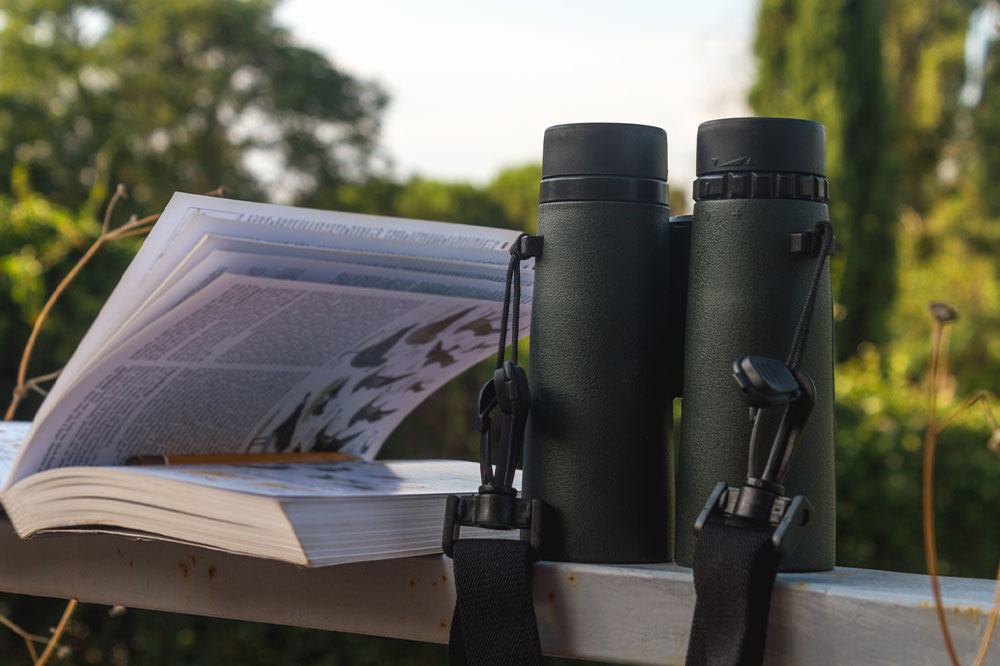Bird Identification – Top Tools, Tips, and Benefits
Bird identification is a crucial activity for bird watchers, ornithologists, and other wildlife enthusiasts. Recognizing and identifying various bird species is essential for both personal enjoyment and conservation efforts. The many ways to identify birds from the photo, including examining visual and aural signals, habitat preferences, and physical characteristics. If you are looking into bird watching as a hobby or professional pursuit, here is a look at the tools for bird identification:

Top tools
Researchers may trace migration patterns, monitor population trends, and investigate behavior by identifying and cataloging bird species. Thanks to several web tools and mobile applications, you can recognize birds through images. Here are a few well-known choices:
Cornell Lab of Ornithology’s Merlin bird ID: Here, you can upload a snapshot of a bird to the free app, and it will utilize artificial intelligence to determine the species. Based on the range, habitat, sound, and behavior information, the app can help you identify the bird.
iBird Pro : The iBird Pro Guide to Birds app features a database of more than 1,000 species, which is available for purchase. You can use the app’s image recognition feature to identify birds from photos or look for birds based on their physical traits.
Audubon Bird Guide App : This is a free application that contains a bird identifier by a picture option enabling you to submit a photo or respond to a series of inquiries about the looks, habitat, and behavior of a particular bird to help identify the species.
eBird : This is an online database of bird sightings. The platform also enables you to post a picture of a bird and get comments from other bird watchers. The website lets you explore popular bird-watching locations and record your observations.
The tools are not always entirely accurate, but they can offer great results to help you identify the species you encounter in your adventure. You should always double-check your bird identification using a field guide or other resources.
Tips for identification
A combination of visual and aural cues, environmental factors, and physical features can be used for wild bird identification. The following tips will assist you in recognizing birds:
Examine the physical features: Record the bird’s distinguishing physical characteristics, including eye color, beak shape, and feather color and pattern. Look for designs on the bird’s feathers or wings and its size, shape, and behavior. These traits can be entered into an online database to find the right species.
Listen to the bird’s vocalizations: Many birds make unique noises or calls that can help with identification. Use a field guide or online resource to listen to recordings of different bird songs and calls to assist you in your quest.
Consider the habitat : Different bird species have specific habitat preferences, such as woodland, wetland, or grassland habitats. Observe the region where you spotted the bird and use the information to help narrow down the possible species.
Use a field guide: A field guide is a valuable tool for identifying birds in the wild, containing information about a variety of species. You should carry a field guide specific to the region where you are birdwatching and use it to identify birds based on their physical characteristics and habitat.
Seek expert assistance: If you need help identifying a bird, ask experienced birdwatchers for advice or join them at a birdwatching event. Birders are usually happy to share their knowledge on identifying species.
Be patient and practice: Recognizing birds in the wild requires time and practice. If you cannot immediately identify a bird, don’t give up. You will become better at identifying species with time and practice.
Benefits
Always remember to be respectful toward the wildlife and their natural habitat while birdwatching. Maintain a safe distance and refrain from interfering with their normal behavior. Bird watching and identification can be a pretty enjoyable experience. Here are some of its benefits:
Increased awareness and exploration of nature: Learning to identify birds from photos can be fun, but doing that in the wild can help you better understand and respect nature. Your knowledge of the variety of bird species and their contributions to ecology may also grow.
Better birding abilities: Learning to identify birds will help you improve your birdwatching abilities, which include studying behavior and vocalizations, identifying physical traits, and understanding environmental preferences.
Contribution to citizen science: The knowledge of bird populations may be improved by correctly identifying birds and reporting sightings on a worldwide database. This information is crucial for tracking conservation efforts and the well-being of bird populations.
Personal satisfaction: Correctly recognizing a bird might make you feel accomplished and satisfied.
Social interaction: Identifying birds with other birders may foster relationships with like-minded people and give you a sense of community. Birding can be a great social activity.
Learning to recognize birds can be a pleasant exercise that fosters a greater appreciation for the natural world. You can start working on your birding skills by learning to identify birds from a photograph based on their physical traits, vocalizations, and habitat preferences. Further, sharing your observations with citizen science initiatives can assist in keeping an eye on bird numbers. Anyone may learn to recognize birds in the wild with the help of online tools and the experiences of knowledgeable birders. So, grab your field guide, binoculars, and a spirit of adventure, and take a birdwatching trip today.




